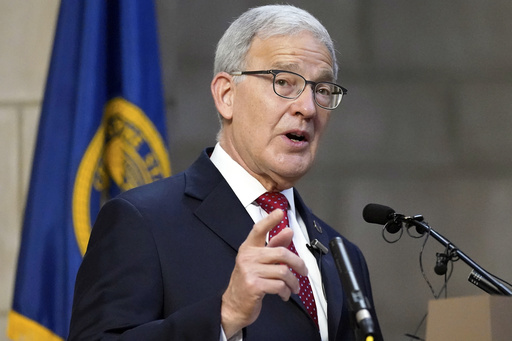The American Civil Liberties Union of Nebraska has taken legal action against top election officials in a lawsuit challenging their defiance of state laws restoring the voting rights of individuals with felony convictions. The ACLU filed the lawsuit on behalf of three Nebraska residents who would be denied the right to vote under a directive from Secretary of State Bob Evnen. Evnen instructed county election officials to disallow individuals with felony convictions from registering to vote in the upcoming presidential election.
One of the plaintiffs, T.J. King of Omaha, completed probation in 2022 after a prison term for drug and theft offenses and intended to register as a Democrat and vote in the election. The ACLU emphasized that individuals who have served their sentences should be fully included in democracy. The lawsuit aims to challenge the decision made by Evnen based on an opinion by the state attorney general, which deemed the law restoring voting rights unconstitutional.
According to the Nebraska Attorney General Mike Hilgers’ opinion, only the state Board of Pardons has the authority to restore voting rights to individuals with felony convictions through pardons, a rare occurrence in Nebraska. The ACLU stressed that the opinion does not hold the power to overturn a law passed by the Nebraska Legislature. With the election approaching, the ACLU filed the lawsuit directly with the Nebraska Supreme Court due to its urgency.
The ACLU’s Voting Rights Project attorney Jonathan Topaz expressed concerns that the directive issued by the secretary of state would disenfranchise thousands of Nebraska citizens. The ACLU argues that only courts have the authority to declare a law unconstitutional and that the directive goes against the voters’ will by reinstating permanent felony disenfranchisement. Critics worry that the directive could impact thousands of Nebraska citizens just months before a significant election.
The tension over the voting rights of individuals with felony convictions arises in a state where electoral votes can be split. Nebraska allocates its electoral votes based on the popular vote in each congressional district. Despite accusations of trying to disenfranchise voters, Evnen maintains that his actions are aimed at upholding the Nebraska Constitution.
